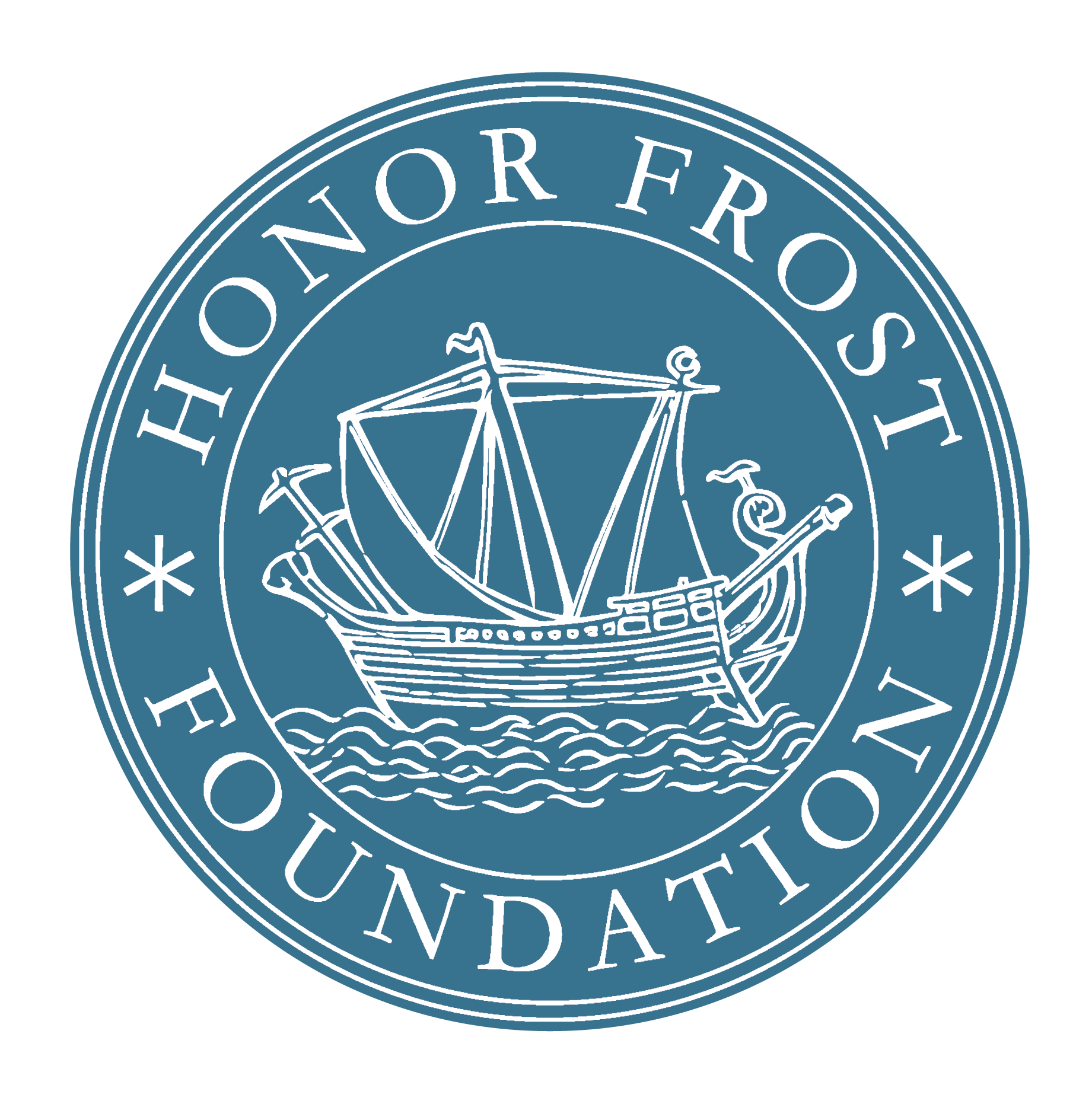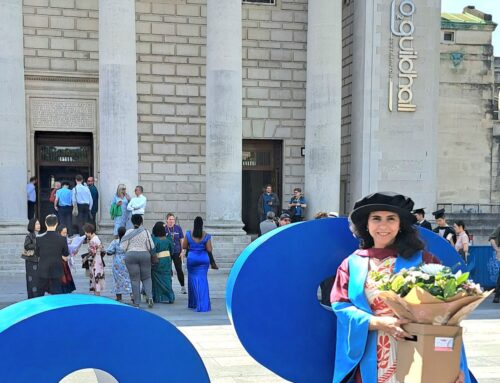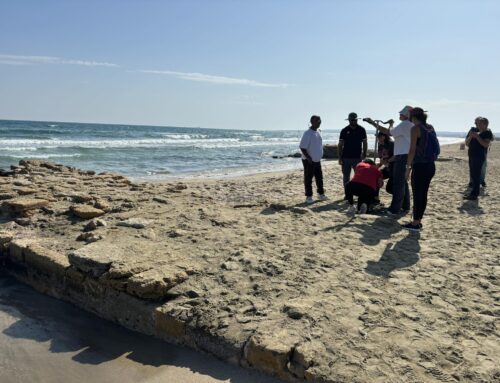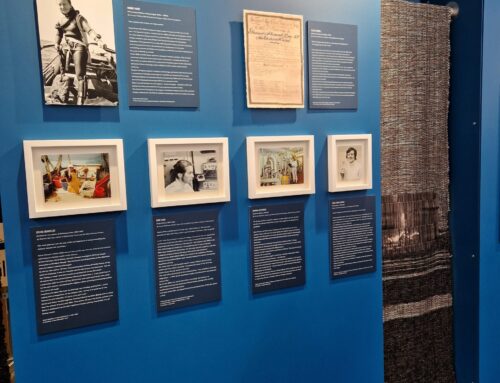HFF Blog – Maria Michael
Introduction of myself and research

This doctoral research achieved to explore the tradition of fishing on the island of Cyprus through time, from the Neolithic to Early Christian periods, by developing a systematic, interdisciplinary approach for recording the available evidence. This is an important contribution to the study of maritime archaeology in Cyprus. For the first time, all the available evidence for fishing in Cyprus was gathered in a single body of evidence to correctly interpret the archaeologically neglected aspect of the fishery. Through this research, the diachronic engagement of Cypriots with fishing and their daily interaction and relationship with their local and regional maritime environment have been defined. Cypriot fishers obviously used various fishing methods to exploit coastal and pelagic resources daily. Technological choices/changes, and how the socio-economic aspects of Cypriot society affected the development of fishing are highlighted in this research.
Since 2006, I have participated in many terrestrial and underwater projects in Cyprus, Greece, Egypt, Lebanon, and the UK, and I have presented my work at various conferences. I have also participated in many outreach projects, workshops, and training courses about remote sensing techniques, GIS, and conservation. Since 2012, I have been working as a field archaeologist at the Committee on Missing Persons in Cyprus (Bi-communal program), where I have directed and conducted excavations and exhumations on both sides of the island, in order to locate the remains of Greek-Cypriot and Turkish-Cypriot missing persons from 1963-64 and 1974.
Currently, I am also the project officer in Cyprus for the HFF Cyprus Regional Development Project, while I am one of the field coordinators of the underwater project of Dreamer’s Bay in Cyprus, which is also supported by the Honor Frost Foundation. Also, I am volunteering for maritime archaeological issues in the Cyprus Federation of Underwater Activities, I am a Vice-President of the Association of Cypriot Archaeologists (2021-2023), I am a member of the steering committee of the Maritime Archaeology Graduate Symposium (MAGS), and I am a member of the crew of the Kerynia-Liberty.
How has the HFF impacted my research?
The Honor Frost Foundation considerably impacted my research and career as a maritime archaeologist. The HFF PhD scholarship was a great opportunity to conduct my doctoral research at the University of Southampton, as it was not possible for this to happen in Cyprus, where the expertise and opportunities for maritime archaeology did not exist at that time. During my PhD, the Honor Frost Foundation supported me to attend a course for the study and interpretation of fish remains given by Mrs. Sheila Hamilton Dyer. This course enhanced my knowledge of ichthyology and helped me to understand how fish remains contribute to the interpretation of archaeological evidence relating to fishing, which is essential for my research. In addition, I received and still receive several HFF bursaries to attend or/and present my research at several conferences. This is very helpful for networking, exchanging ideas with scholars across various institutions, and developing future collaborations. Also, in December 2021, I was invited to present in the 10th HFF annual lecture, which was a great opportunity.
Without the endless financial and moral support of the Honor Frost Foundation, I would not be also able as an early researcher to enhance my knowledge and my skills in maritime archaeology through various training courses, and workshops. Through the scheme of training bursaries, I had the opportunity to attend the NAS Online Course: Promoting maritime heritage through social media, in which I learned how to use sensibly the popular social media (Facebook, Instagram, Twitter) to promote maritime heritage activities and projects. Furthermore, I received a training bursary to attend the online program “Underwater Mapping – Methodology and Geohazards”, which was organised by the National University of Athens and lasted for five months. Through this educational program, I had the opportunity to develop professional skills for the recording, processing/analysis, interpretation, and display of bathymetric and coastal data from various sources.
Furthermore, in 2017, the Honor Frost Foundation supported my project for the preservation of the Replica Ship Kerynia-Liberty, which is used for experimental sailing trips and studies of ancient shipbuilding. During this project, the crew of the Kerynia-Liberty also offered experiential, audiovisual presentations at 27 elementary schools, in an effort to engage the interest and imagination of young students in the field of maritime archaeology, and present relevant issues of Cypriot history. Also, theoretical, and hands-on practical training was offered to undergraduate and postgraduate students from the University of Cyprus in order to understand the importance of experimental archaeology for learning about ancient seafaring, shipbuilding, and trade. Consequently, this project was a great opportunity to engage young Cypriots with maritime archaeology.
What are your next plans?
Firstly, I am planning to submit a volume proposal to revise my PhD thesis into a monograph, and finally, publish it in the HFF Research Series. Through my involvement on a variety of HFF funded projects, including the Dreamer’s Bay survey and the Cyprus Regional Development Project, I aim to contribute to developing research in maritime archaeology in Cyprus and the eastern Mediterranean. Furthermore, I am planning to collaborate with colleagues in Lebanon to record and correctly interpret the tradition of fishing within the region of the eastern Mediterranean. Finally, more experimental trips with the Kerynia-Liberty would be organised in order to give the opportunity to Cypriot students and students from the University of Southampton to learn about ancient seafaring, shipbuilding, and trade.





